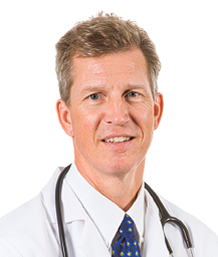You Need More of These 3 Nutrients in Your Diet

The supplement aisle in grocery stores is tempting, isn’t it? The labels on the backs of the bottles would have you believe that for just a few dollars, you could take a pill that improves a huge range of symptoms – or just your overall health.
I have a feeling you know the bad “news” I’m about to share: Most of the time, supplements can’t do as much good for your body as making better food choices. Fortunately, you won’t need to eat salads all day to get the nutrients you’re probably lacking.
Are you wondering, “How does this doctor I’ve never seen know what my diet’s lacking?”
Well, I see a wide range of patients at Franconia Family Medicine – my MDVIP-affiliated primary care practice in Alexandria, Virginia – and many of them are short on the same nutrients as the rest of the country. So, you might be, too.
According to large studies:
• A large percentage of adults don’t meet recommendations for omega-3 fatty acids.
• Less than 3 percent of Americans get recommended fiber intakes.
• More than 40 percent of adults don’t get enough vitamin D.
Here’s what these very important nutrients can do for your health, plus easy ways to get more of them in your diet.
Omega-3 fatty acids
Benefits of omega 3s: Omega-3 fatty acids include two crucial types called EPA and DHA. Mostly they’re found in fatty fish, such as salmon. Omega 3s may provide some protection against many conditions, like cardiovascular disease, type 2 diabetes, cognitive decline, depression and more.
Foods Rich in mega 3s:
- The best way to get more omega 3s in your diet is by eating fatty fish a couple times a week. It doesn’t have to be a boring meal: You can grill it, toss it on a salad, stuff it in a sandwich, slather it with pesto, flake it in your omelet.
- Now, not everyone likes fish – and there are vegetarian sources of omega-3s, such as flaxseeds and walnuts. These don’t have quite the same benefits for your body, though.
Ask your doctor whether vegetarian sources of omega 3s are enough for you, or whether you could benefit from a fish-oil supplement.
Fiber
Benefits of fiber: Research shows that eating 30 grams of fiber every day can help you shed pounds, lower your blood pressure, and improve your body’s response to insulin. High-fiber diets can also help prevent cardiovascular disease and type 2 diabetes.
Foods high in fiber: It’s amazing to me that so few of us get enough fiber, considering it’s in so many delicious foods:
- Whole grains (think quinoa, oatmeal, brown rice)
- Fruits
- Vegetables
- Beans
- Nuts
- Popcorn
To give you an idea of how easy it is to get 30 grams of fiber:
- Fiber One cereal: 14 grams per half-cup
- Kidney beans: 6 grams per half-cup
- Brown rice: 4 grams per cup
- Pear (with skin): 6 grams
Vitamin D
Benefits of vitamin D: You need it for strong, healthy bones. The “sunshine vitamin” may also play a role in healthy muscles and reducing your risk of certain cancers. (It’s called the sunshine vitamin because ultraviolet light from the sun helps your skin make vitamin D.)
Foods rich in vitamin D: A few foods have vitamin D as well, including fatty fish, mushrooms, egg yolks and fortified milk.
A simple blood test can reveal whether you’re low on D. If so, your doctor may recommend a supplement. But don’t be so fast to grab a bottle off the supermarket shelves before you actually get that blood test. Only your primary care doctor can let you know whether taking vitamin D is a good idea, how much you should take and if there are any risks based on your medical history and current prescriptions.
This blog reflects the medical opinion of Dr. Bret Wohler, an MDVIP-affiliated, board-certified family practice physician, and not necessarily the opinion of all physicians in the MDVIP national network.

